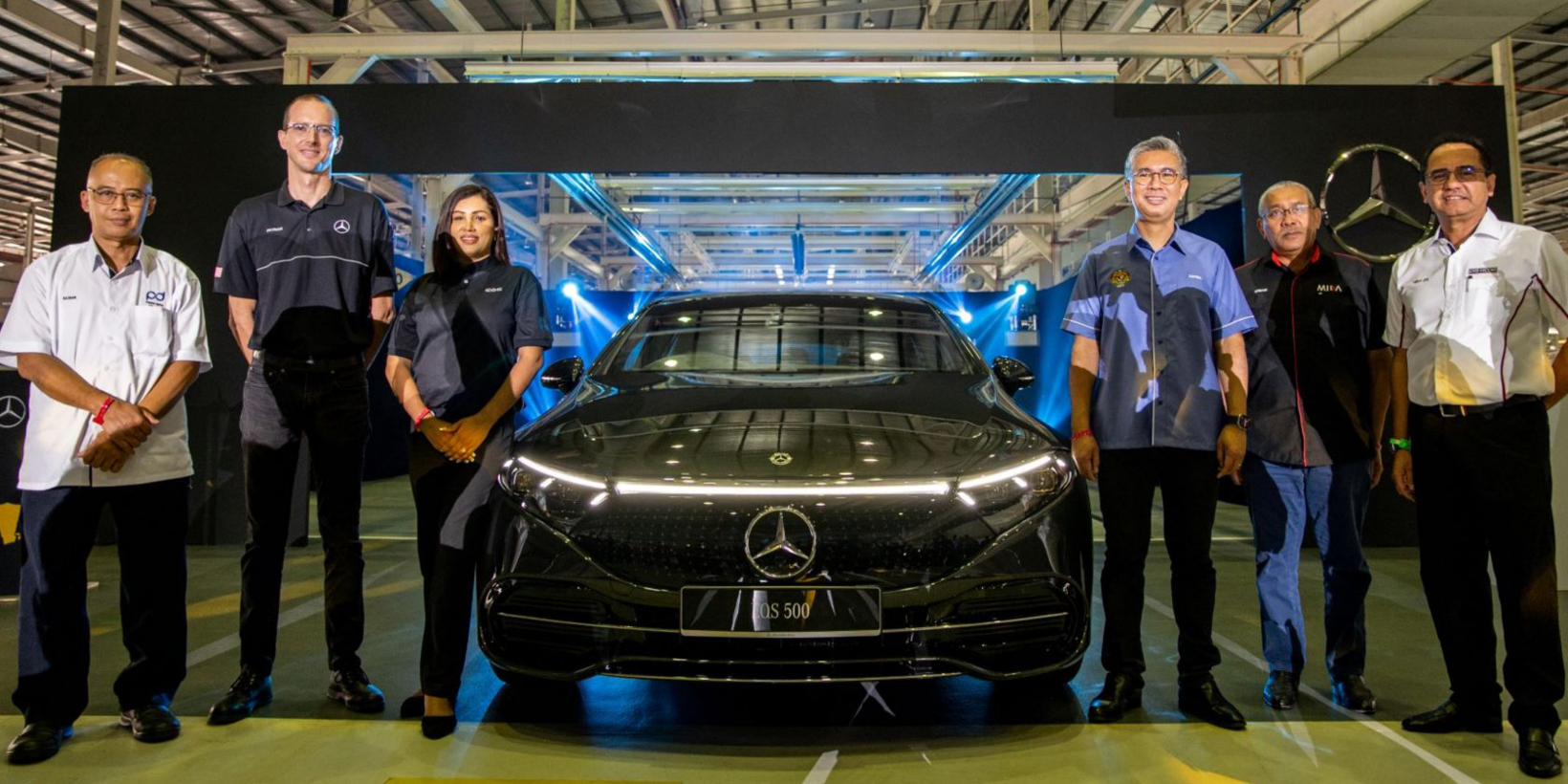Mercedes Aims for Complete Electrification in Malaysia by 2030
Luxury automaker Mercedes-Benz Group has set its sights on Malaysia as a key market, with ambitious plans to electrify its entire vehicle lineup within the country by the year 2030. Earlier this year, Mercedes-Benz achieved the milestone of becoming the first automaker to introduce locally-produced electric vehicles in Malaysia.

(Image: Mercedes Benz EQS 500)
This strategic move has proven fruitful, as Mercedes-Benz has witnessed a staggering 200 percent surge in electric vehicle (EV) sales in Malaysia this year, surpassing the group’s global growth rate of around 120 percent in the first half of the year. Although this growth is from a relatively modest starting point, it is significant. Pure electric vehicles now constitute approximately 11 percent of Mercedes-Benz’s global sales. Impressively, in Malaysia, these EV sales account for about 30 percent of the brand’s overall lineup.
Bettina Plangger, Vice-President of Mercedes-Benz Malaysia, highlighted in a recent interview, “There is a growing interest in electric vehicles, with more players entering the electric vehicle market and increasing demand. We are highly optimistic about achieving this target in Malaysia.”
In an effort to boost the EV ecosystem and incentivize adoption, Malaysia is directing its efforts towards ensuring that electrified vehicles, including hybrids, comprise 15 percent of the national car fleet by the year 2030. Over the past year, global EV giants such as BYD and Tesla have introduced their products in Malaysia. However, Mercedes-Benz’s premium market positioning sets it apart in an increasingly competitive landscape. The brand boasts one of the most extensive electric vehicle lineups in Malaysia.
Among its offerings, the locally-assembled Mercedes-Benz EQS 500 4Matic stands out with a starting price of RM649,000 (US$142,000), making it the most expensive electric vehicle in the Malaysian market. By comparison, the Tesla Model Y begins at RM199,000 (US$43,400), the BYD Dolphin at RM99,900, and the Atto 3 at RM149,800.
Mercedes-Benz has slated the launch of two additional electric vehicles in Malaysia for the final quarter of 2023. The brand is committed to achieving full electrification by 2030 and net-zero emissions by 2039, as market conditions permit.
Plangger emphasized that Mercedes-Benz’s focus is more on delivering “value” to customers as a luxury brand rather than solely on price considerations. She elaborated, “Ultimately, it’s not just about price; it’s about the value you can provide customers at that price point. We prioritize delivering the best technology and offering our customers the finest experience.”
Earlier this year, Hap Seng Star, Mercedes-Benz’s primary retail partner in Malaysia, announced an agreement with Mercedes-Benz Malaysia to transition its current dealership model into an agency mode. This shift aims to facilitate more direct interactions with customers and grant the brand greater control over pricing.
To bolster charging infrastructure, Mercedes-Benz is collaborating with Gentari Bhd, the green transportation arm of Petronas, and EV Connection Bhd. The goal is to expand the brand’s charging network across Malaysia. The company has already established five charging stations along highways, including Malaysia’s inaugural electric vehicle charging center. By the end of this year, Mercedes-Benz aims to install 14 DC charging stations at its retail outlets.

 Auto in China
Auto in China